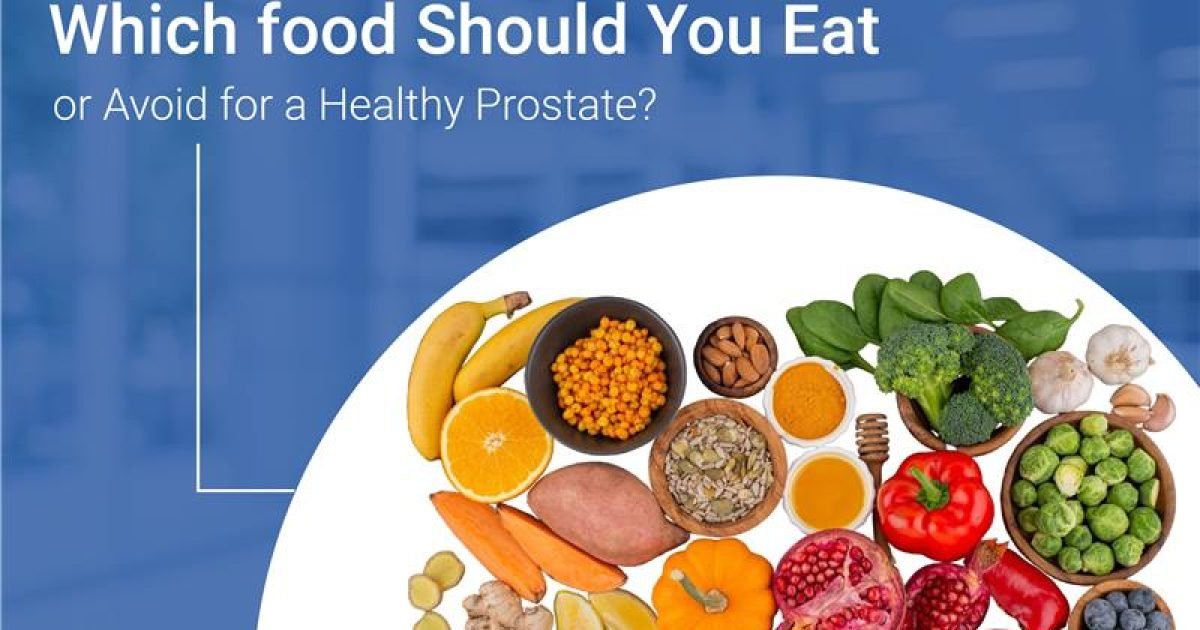Maintaining prostate health is crucial for men, especially as they age. The prostate gland plays a significant role in the male reproductive system, but it is also susceptible to conditions like benign prostatic hyperplasia (BPH) and prostate cancer. While genetics and age contribute to prostate issues, diet plays a pivotal role in supporting prostate health. In this article, Dr. Saket Narnoli, a leading prostate health specialist in Dhanbad, discusses the best foods for prostate health and what foods to avoid for optimal well-being.
Diet an Enlarged Prostate
An enlarged prostate, also known as benign prostatic hyperplasia (BPH), is a common condition among older men. It can cause urinary problems, including frequent urination, weak urine flow, and difficulty emptying the bladder completely. Research suggests that diet can help manage these symptoms and may even reduce the risk of developing prostate gland problems.
A prostate-friendly diet is rich in antioxidants, anti-inflammatory compounds, and essential nutrients that support prostate function. By incorporating superfoods and eliminating harmful foods, men can take a proactive approach to maintaining prostate health.
Foods to Eat for a Healthy Prostate
- Tomatoes (Rich in Lycopene)
Lycopene, a powerful antioxidant found in tomatoes, has been linked to prostate cancer prevention. Cooking tomatoes, such as in tomato sauce or soup, enhances lycopene absorption, making it a beneficial addition to a prostate health diet.
- Cruciferous Vegetables (Broccoli, Cauliflower, Brussels Sprouts)
These vegetables contain sulforaphane, a compound known for its cancer-fighting properties. They help detoxify the body and reduce inflammation, promoting better prostate health.
- Fatty Fish (Salmon, Mackerel, Sardines)
Omega-3 fatty acids found in fatty fish have anti-inflammatory properties that may lower the risk of prostate problems. Including fish at least twice a week can support prostate and overall health.
- Nuts and Seeds (Brazil Nuts, Walnuts, Flaxseeds, Pumpkin Seeds)
Brazil nuts are an excellent source of selenium, a mineral that supports prostate function. Pumpkin seeds and flaxseeds contain zinc and essential fatty acids that help maintain hormonal balance and reduce inflammation.
- Green Tea
Green tea is packed with antioxidants, particularly catechins, which have been shown to reduce prostate cancer risk and improve urinary symptoms related to BPH.
- Berries (Strawberries, Blueberries, Raspberries)
Rich in vitamin C and antioxidants, berries help combat oxidative stress, which can contribute to prostate problems.
- Legumes (Lentils, Chickpeas, Soybeans)
Soy-based foods like tofu and soy milk contain isoflavones, which may help reduce the risk of prostate enlargement and prostate cancer.
- Whole Grains (Brown Rice, Quinoa, Oats)
Fibre-rich whole grains aid digestion and promote heart and prostate health by reducing inflammation.
Foods to Avoid or Limit for Prostate Health
- Red and Processed Meats
High consumption of red and processed meats, such as beef, pork, and sausages, has been linked to an increased risk of prostate cancer. Limiting intake or opting for lean protein sources is recommended.
- Dairy Products (Milk, Cheese, Butter)
Excessive dairy consumption has been associated with a higher risk of prostate issues. Consider choosing plant-based milk options like almond or soy milk.
- High-Fat Foods
Foods high in unhealthy fats, such as fried foods, fast food, and trans fats, contribute to inflammation and may exacerbate prostate gland problems.
- Excessive Alcohol and Caffeine
Too much alcohol and caffeine can irritate the bladder and worsen symptoms of an enlarged prostate. Reducing consumption can help manage urinary issues.
- Sugary and Processed Foods
Diets high in refined sugars and processed foods can contribute to obesity, inflammation, and increased prostate health risks. Opt for natural, whole foods whenever possible.
Managing an Enlarged Prostate Through Diet
In addition to making dietary changes, managing an enlarged prostate involves adopting a healthy lifestyle:
- Stay Hydrated: Drinking plenty of water helps flush toxins from the body and supports prostate health.
- Exercise Regularly: Physical activity improves circulation and reduces inflammation, benefiting prostate function.
- Maintain Healthy Weight: Obesity has been linked to an increased risk of BPH and prostate cancer.
- Reduce Stress: Chronic stress can negatively impact hormone balance and prostate health. Practices like meditation, deep breathing, and yoga can be beneficial.
Enlarged Prostate Symptoms to Watch For
Early detection of prostate problems can prevent complications. Some common symptoms of an enlarged prostate include:
- Frequent urge to urinate, especially at night
- Weak or interrupted urine flow
- Difficulty starting or stopping urination
- Incomplete bladder emptying
- Painful urination or ejaculation
If you experience these symptoms, consulting a nutritionist for prostate health or the best dietitian for prostate health can help develop a personalized dietary plan. Additionally, seeking advice from a prostate health specialist in Dhanbad, like Dr. Saket Narnoli, ensures a comprehensive approach to prostate care.
Conclusion
A well-balanced diet rich in prostate-friendly superfoods can significantly improve prostate health and reduce the risk of prostate gland problems. Incorporating foods like tomatoes, green tea, and fatty fish while avoiding processed meats, excessive dairy, and high-fat foods can make a notable difference. If you are experiencing prostate-related symptoms or want guidance on a prostate cancer prevention diet, consulting a healthcare professional or a dietitian can help you make informed dietary choices for optimal well-being.
For expert guidance and tailored care, book a consultation with a trusted urologist in Dhanbad, specializing in prostate health.






